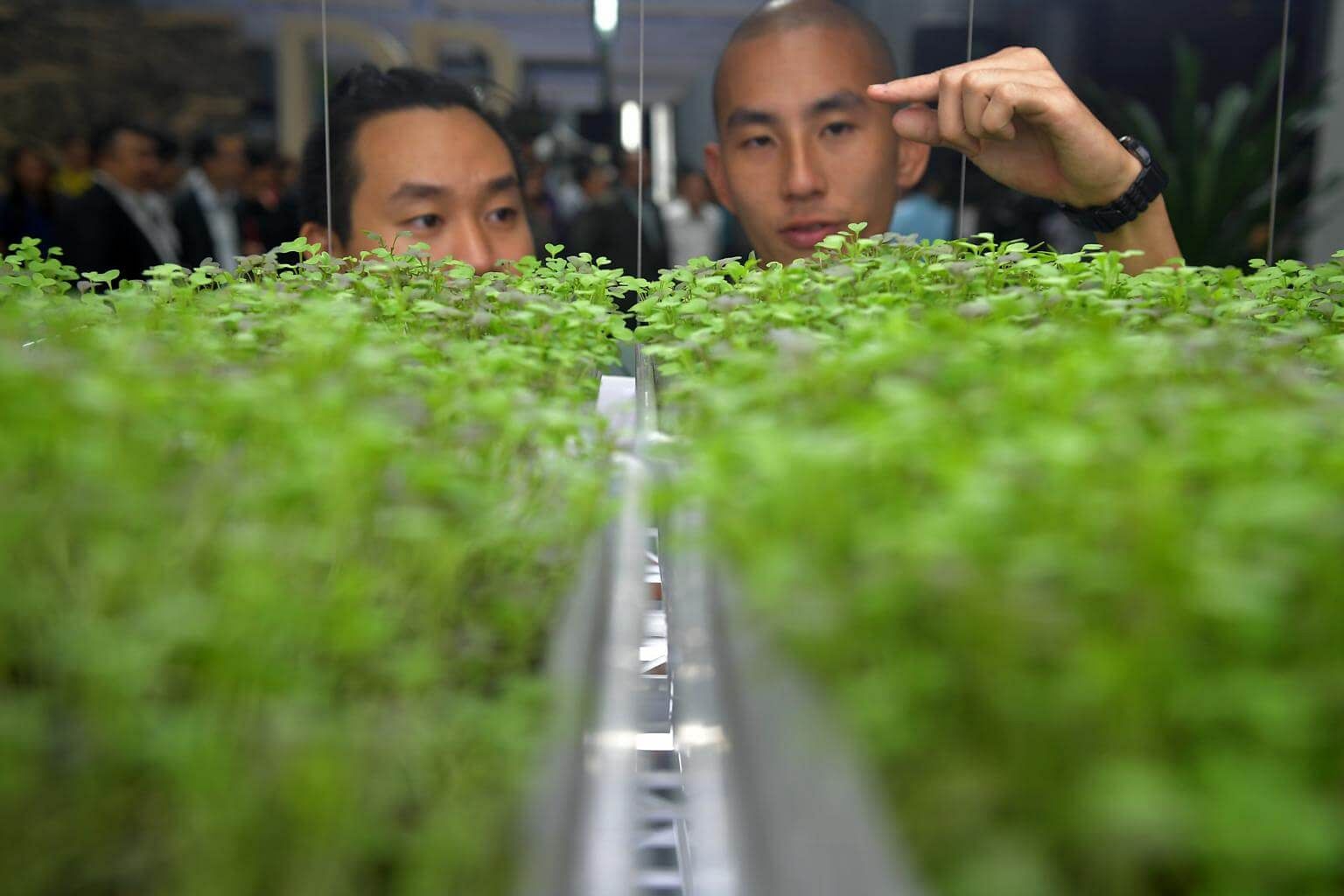New wave of high-tech farms aim to grow more with less
Sign up now: Get ST's newsletters delivered to your inbox

Timothy Jung (left) and Christopher Leow (right), farmers for Microgreens looking at their close-group farming system at the URA launch of 'Growing More with Less'.
ST PHOTO: KUA CHEE SIONG
Lin Yangchen
Follow topic:
SINGAPORE - Farms in industrial buildings that grow vegetables under precisely controlled conditions, "high-rise" seafood farming, and farms inside offices - these are some of the next-generation farms featured at a new exhibition launched on Wednesday (Sept 6).
Called Growing More With Less, the exhibition at the URA Centre at Maxwell Road highlighted farms that use novel ideas from other industries and harness the latest technologies to grow more produce with less.
The event was organised by the Urban Redevelopment Authority (URA) in collaboration with the Agri-Food and Veterinary Authority (AVA) and several commercial partners.
On show until Oct 31, it is the fifth in URA's Urban Lab exhibition series, which started in 2015.
Among the displays at the exhibition are a prototype building under construction in Sweden that grows vegetables in offices where people provide carbon dioxide to the plants which give oxygen in return, and a local "high-rise" seafood farming project by Apollo Aquaculture Group that produces six times more than a traditional fish farm here.
Another featured farm is Sustenir, located in a Sembawang industrial building. It features many levels of vegetable-growing spaces, with precisely controlled lighting and other conditions that can grow vegetables in half the time of and with 95 per cent less water than traditional farming. And there are no pests to worry about, too.
Even major corporations are getting into farming - one of the participants in the exhibition is Keppel Offshore and Marine, which showcases a conceptual model of a large floating fish farm modelled after an oil rig.
URA's acting group director of research and development Chiu Wen Tung said this new wave of farming would not only boost production but also create new jobs attractive to young people, as the farms no longer require manual labour but involve working with control systems not much different from a high-tech production facility.
Dr Koh Poh Koon, Senior Minister of State for National Development and Trade and Industry, who launched the exhibition, said the world needs to produce an increasing amount of food in an increasingly challenging environment affected by factors such as urbanisation and climate change, and that Singapore is faced with even more challenges like land scarcity and high labour costs.
He added that technologies like those showcased at the exhibition will not only help Singapore boost its food security, but also benefit the rest of the world.

